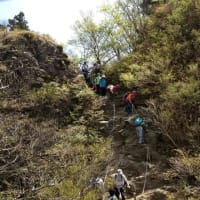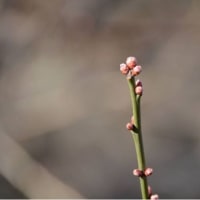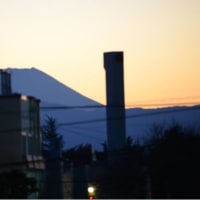上から朝日、読売、共同、毎日です。こういうときは赤なんですね。

以下は、引用です。
Japan's Fukuda Selected as Prime Minister
Ruling Party Candidate to Be Formally Installed TuesdayBy Blaine Harden
Washington Post Foreign Service
Sunday, September 23, 2007; 8:02 AMTOKYO, Sept. 23 -- Desperate for competence, Japan's troubled ruling party on Sunday chose as its leader an admittedly un-charismatic party elder known for his dovish foreign policy and quiet political know-how.
Yasuo Fukuda, 71, a long-time salaryman in the oil industry before serving as cabinet chief under two prime ministers, will formally become prime minister on Tuesday.
He will take over from Shinzo Abe, the relatively youthful (at 53) but unpopular prime minister who left his party in perhaps its worst political mess since World War II, when he abruptly announced his desire to quit 11 days ago and checked into a hospital for stress-related stomach trouble.
The Liberal Democratic Party (LDP), which has monopolized post-war political power in Japan, badly lost its way during Abe's one year in power, as financial scandal and failure to address a fiasco involving 50 million misfiled pension records led to a crushing defeat in a mid-summer election in the upper house of parliament.
"It has become clear that we have not won the trust of the Japanese people," Fukuda said Sunday evening, after his selection as party leader. The LDP still controls the lower house, which selects the prime minister.
"There will be no sudden improvement" in the ruling party's popularity, he added. "In order to win back trust, one can only build one block at a time."
To that end, Fukuda is promising to tone down the nationalist rhetoric of his two most recent predecessors, strengthen ties with China, negotiate with North Korea and carefully cultivate Japan's strong relationship with the United States.
He has promised not to visit the Yasukuni war shrine in Tokyo, where a handful of Japanese war criminals are honored among the country's 2 million war dead.
The shrine, after much-publicized visits by former prime minister Junichiro Koizumi, has become a potent symbol across Asia of Japan's seeming ambivalence about its wartime atrocities.
Abe exacerbated those concerns by backing away from his nation's previous apologies for its wartime policy of forcing women to become sex slaves for Japanese soldiers. Abe said there was no documentation proving that the military coerced women into becoming prostitutes -- a statement contradicted by documents found by Japanese government researchers.
"The LDP can't afford to cause any more blunders," said Harumi Arima, a political analyst. "They want to wipe out the inexperienced, childish image of Abe, and they desperately want to win back trust from the Japanese people."
Fukuda conceded last week that he lacks charisma, but argued that the problems of his party -- a perception of incompetence and of being politically tone-deaf -- cannot be solved merely by a strong personality.
Leadership, he said on Sunday night, will emerge slowly from his ability "to steadily and faithfully respond to the people's expectations. It might take time, but I would like to do my best to regain the public's trust."
Quietly confident in manner, Fukuda is the son of a former prime minister and worked for his father's administration as a secretary.
It sometimes seems that nearly everyone in Japan who aspires to be prime minister has kin who already held the job. Abe is the grandson of a prime minister, and Fukuda's only opponent for LDP leadership was Taro Aso, the grandson of one prime minister and son-in-law of another.
While blue blood seems to grease one's passage to the top ranks of the LDP, it is unlikely to help Fukuda solve Japan's profound economic and demographic challenges.
The traditional rural base of the LDP largely missed out on the nation's economic recovery in the past five years, and Fukuda is promising to "thoroughly" address the needs of hard-pressed people in the countryside.
This could involve a resumption of costly, but questionable public works projects that in the past have secured his party's overwhelming support outside major cities.
Increased spending would likely require an increase in sales taxes, which Fukuda has said he may support. It could also hobble efforts to reduce Japan's gargantuan deficit, the world's largest among highly developed nations.
Hanging over the government is an even more unwieldy problem -- a demographic calamity driven by aging and low birth rates. U.N. forecasts say the country's population of 127 million could shrink by 25 million by 2050.
For Japan to maintain its high standard of living and preserve its position as the world's second-largest economy, after the United States, analysts say it needs to invest heavily in reforms to increase economic productivity -- and not in more pork barrel spending in the countryside.
The LDP, which has governed Japan as a virtual one-party state for all but nine months since the end of the war, faces another daunting challenge in the coming months -- a combative opposition party with substantial public support.
The Democratic Party of Japan, which won control of the upper house of parliament in July, is trying to force an early election in the lower house.
By law, Fukuda can serve out the remainder of Abe's term, which ends in the fall of 2009. But if the LDP continues to struggle with public support (Abe's popularity had dipped under 30 percent), an early election is considered possible.
Analysts here say the Democratic Party is seeking to force an election next spring, when parliament must approve a new budget.
To precipitate continued political turmoil and demonstrate the LDP's weakness, the head of the Democratic Party, Ichiro Ozawa, has vowed to kill an Abe-backed antiterrorism law. It authorizes a refueling operation in the Indian Ocean -- a free gas station that has been Japan's primary contribution to U.S.-military led operations in Afghanistan. The Bush administration and several other countries have urged Japan to continue to supply free fuel to their warships.
As part of Japan's global responsibilities, Fukuda has said he wants to continue the fueling operation and that he will try to win Ozawa's cooperation in making it happen.
But the opposition leader has said little to suggest that he is interested a making a deal that would help the LDP repair its damaged reputation.
Special Correspondent Akiko Yamamoto contributed to this report.
http://www.washingtonpost.com/wp-dyn/content/article/2007/09/23/AR2007092300112_pf.html




















※コメント投稿者のブログIDはブログ作成者のみに通知されます